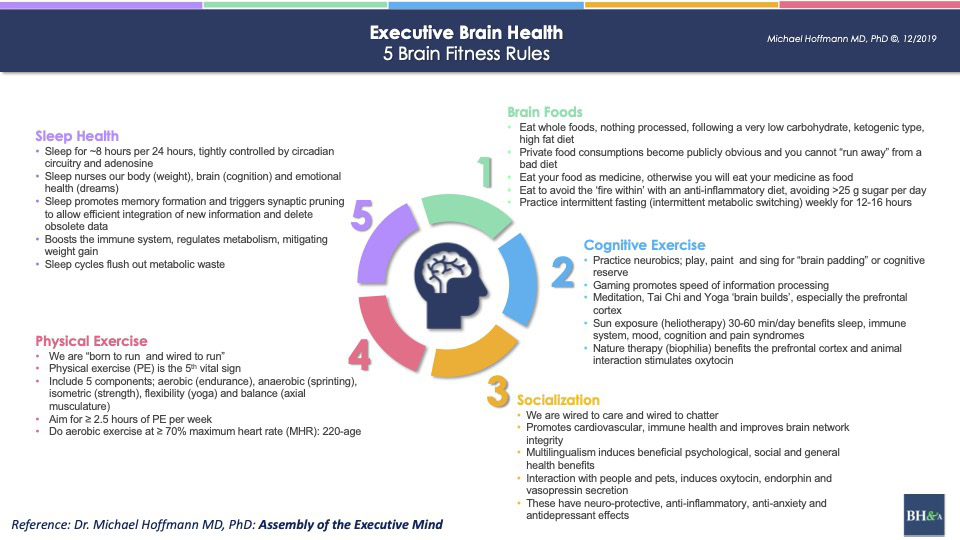Metabolic health is inextricably linked to brain health, according to Michael Hoffmann, MD, PhD, professor of neurology at the University of Central Florida, who outlines his five rules for “Executive Brain Vitality” for both physical and mental well-being during Digestive Disease Week® (DDW) 2024.

“There’s so much we can do about brain health that has nothing to do with medications or device therapies,” says Dr. Hoffmann. “If we keep our bodies healthy, our brains will also remain healthy.”
The increase in overweight and obesity around the world may be associated with poor cognitive and mental health, according to Dr. Hoffmann. “The very first thing affected when you are metabolically unhealthy is your vascular system,” he says. “This supplies nutrients to every single organ in the body, most importantly the brain.”
Physicians are, of course, not immune from having an unhealthy lifestyle. Long hours, stress and easy access to unhealthy foods can make it hard to make healthy choices. Dr. Hoffmann stresses that it is important to be specific when incorporating healthy activities into your life.
“Physicians often tell their patients to follow a healthy lifestyle,” he says, “That doesn’t help much. Giving people very specific rules to follow and describing how to accomplish them makes a huge difference.”
He has developed five brain fitness rules to help people improve mental and physical health, with concrete examples of how to implement them.
Sleep
Good sleep is the most important brain fitness rule, according to Dr. Hoffmann. Getting eight hours of sleep is recommended, but Dr. Hoffmann stresses that sleep quality is just as important as quantity. He recommends that people set an alarm clock in the evening to tell them when to go to bed instead of when to wake up.
“Sleep is so critically important,” he says. “If you want to have a good day tomorrow, make sure you have good sleep tonight.”
Nutrition
Cutting out junk food, soda, fast foods and sugars in favor of more fruits and vegetables is critical to good nutrition, Dr. Hoffmann says. He also notes that several foods may be particularly important for brain health. For example, docosahexaenoic acid, which is found in seafood, is important for brain-cell growth and promotes neuronal connectivity. Diets such as the Mediterranean, Nordic, Dietary Approaches to Stop Hypertension (DASH) or Okinawan diets are good places to start.
Physical activity
Exercise is not optional for Dr. Hoffmann. It is a must. Finding a type of exercise that you enjoy is key — and combining different types of exercise can be even more beneficial. He recommends that people monitor their maximal oxygen consumption (VO2max) to better understand and monitor their fitness level. This metric can be automatically measured by smartwatches, and several online tools can tell you the average VO2max for your age and gender.
Cognitive exercise
Stimulating your brain through activities such as board games, card games, computer games, reading, writing or music can build cognitive reserve, or ‘brain padding’ and can improve memory, says Dr. Hoffmann.
Socialization
He recommends socializing with at least five groups of people per week, which can include family, friends and colleagues. Face-to-face interactions are most beneficial, but phone or online meetings can also be important.
Knowing the rules and actually following them are two separate things, however. For those having trouble sticking to these habits, Dr. Hoffmann recommends seeking outside support.
“Everybody should have a health coach or a brain coach,” he says. “Sometimes it’s just needed for a few weeks or months. Finding someone to help you stay accountable to following these rules can dramatically improve your health.”

Dr. Hoffmann’s oral presentation, “Executive Brain Vitality” on Monday, May 20, at 10:45 a.m. EDT is part of the “Doris and John L. Cameron Guest Oration.”


